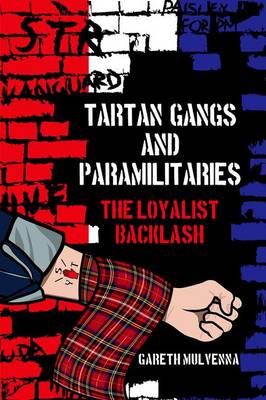
Stock image for illustration purposes only - book cover, edition or condition may vary.
Tartan Gangs and Paramilitaries: The Loyalist Backlash
Gareth Mulvenna
€ 28.44
FREE Delivery in Ireland
Description for Tartan Gangs and Paramilitaries: The Loyalist Backlash
Paperback. In the violent maelstrom of early 1970s Belfast many young members of the loyalist youth gangs known as 'Tartans' joined the fledgling paramilitary groups - this is an in-depth account of that dramatic convergence. Num Pages: 256 pages, 12 black & white illustrations. BIC Classification: 1DBKN; 3JJPL; HBJD1; HBLW3; HBTV. Category: (G) General (US: Trade); (U) Tertiary Education (US: College). Dimension: 270 x 235 x 24. Weight in Grams: 372.
Tartan Gangs and Paramilitaries is a new oral history of the loyalist backlash of the early 1970s in Northern Ireland. In the violent maelstrom of Belfast in 1971 and 1972 many young members of loyalist youth gangs known as `Tartans' converged with fledgling paramilitary groups such as the Red Hand Commando, Ulster Volunteer Force and Young Citizen Volunteers. This fresh account focuses on the manner in which the loyalist community in Belfast reacted to an increasingly vicious Provisional IRA campaign and explores the violent role that young loyalist men played in the period from 1970 - 1975. Through the use ... Read more
Tartan Gangs and Paramilitaries is a new oral history of the loyalist backlash of the early 1970s in Northern Ireland. In the violent maelstrom of Belfast in 1971 and 1972 many young members of loyalist youth gangs known as `Tartans' converged with fledgling paramilitary groups such as the Red Hand Commando, Ulster Volunteer Force and Young Citizen Volunteers. This fresh account focuses on the manner in which the loyalist community in Belfast reacted to an increasingly vicious Provisional IRA campaign and explores the violent role that young loyalist men played in the period from 1970 - 1975. Through the use ... Read more
Product Details
Publisher
Liverpool University Press
Format
Paperback
Publication date
2017
Condition
New
Number of Pages
256
Place of Publication
Liverpool, United Kingdom
ISBN
9781781383261
SKU
V9781781383261
Shipping Time
Usually ships in 4 to 8 working days
Ref
99-2
About Gareth Mulvenna
Gareth Mulvenna has previously worked as a parliamentary researcher in the Northern Ireland Assembly and during the writing of 'Tartan Gangs and Paramilitaries' he held a Visiting Research fellowship at Queen's University Belfast School of Politics, International Studies and Philosophy. Gareth was a member of History Hub Ulster for whom he carried out research on the historic Craigavon House in ... Read more
Reviews for Tartan Gangs and Paramilitaries: The Loyalist Backlash
'This is an important and valuable historical work that humanises those that suffered and those who fought in the conflict.' Sean Huddleston, Irish Studies Review 'Mulvenna has made an important contribution to existing work on the loyalist paramilitaries, including that by Scottish academics Steve Bruce and Ian S Wood. The book is among the best accounts of the sweaty, ... Read more
